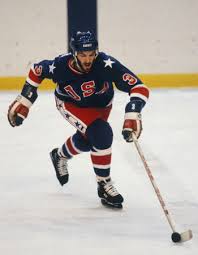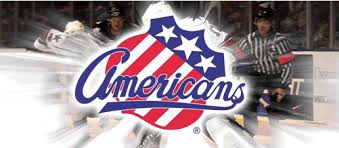By Jon Lane @JonLaneNHL / NHL.com Staff Writer —
At this time every year, Ken Morrow’s inbox and cellphone are flooded with messages reminding him about a particular late afternoon in the small village of Lake Placid, New York. He never gets tired of it, not when the subject arguably is the greatest moment in American sports.
In 1980, Morrow was a 23-year-old defenseman playing for the United States Olympic hockey team, a group of fresh-faced, peach-fuzzed college kids who stunned the mighty Soviet Union in the semifinals at the Lake Placid Olympics 37 years ago Wednesday, en route to winning the country’s first gold medal in 20 years. Morrow went from the “Miracle on Ice” directly to the New York Islanders, and three months later became the first player in NHL history to win Olympic gold and the Stanley Cup in the same year.
For Morrow, the memories are never outdated. They get better with the passage of time.
“Looking back, it kind of shaped my career in a hurry,” Morrow said in a phone interview Wednesday. “Many players don’t get to experience one of those things. First, I just remind myself how fortunate I was. I enjoy talking about it with people 37 years later. They still ask, they want to know and they remember.”
The seeds were planted 12 days earlier at Madison Square Garden in a 10-3 loss to the Soviet Red Army that turned out to be the best thing for a young U.S. team that didn’t only lose by brute skill, but also intimidation.
“Maybe we were so young we didn’t know any better,” Morrow said. “That Soviet game, credit [coach] Herb Brooks for putting it on the schedule. People thought he was crazy to play that team two weeks before the Olympics. What it did do, it got all of our nerves out all in one game, as you can tell by the score.”
The Soviets stormed to the medal round with wins by scores of 16-0, 17-4, 8-1, 4-2 and 6-4, setting up a date with the United States, also undefeated and with its game peaking. Two other variables would later help determine the course of the semifinal game: The Americans were particularly dominant in the third period — they trailed in every game of the tournament — and were such underdogs that the expectations and pressure were minimal.
“The combination of having already been on the ice with them and there weren’t any expectations that we were going to win that game, there wasn’t any pressure in that regard,” Morrow said. “We were playing in front of our home crowd (8,500 at Olympic Center), which was a huge factor for us.”
Though trailing 2-1 in the first period, the United States already was doing the unthinkable, skating with the Red Army before Mark Johnson’s goal with a second left in the period tied the game. The second period began with Soviet goalie Vladimir Myshkin replacing Vladislav Tretiak, a shocking turn of events to everyone except the college kids wearing red, white and blue.
“Nothing was said about that,” Morrow said. “It was a nonfactor. We didn’t approach it any differently.
“We scored two goals on [Tretiak] in the first period, so it wasn’t like as if you can say he was going to shut us out the rest of the way. It may have been a turning point, but they pretty much controlled the second period after they did make the goalie change. We came out of it down a goal, 3-2, but [U.S. goalie Jim] Craig played out of his mind. We don’t win that game if Jimmy doesn’t have the game of his life.”
Morrow, Craig and the Americans took over in the third period, taking the Soviets’ breakneck style and throwing it back at them. Johnson’s second goal tied the game 3-3 at 8:39 of the third, less than two minutes before Mike Eruzione’s famous shot beat Myshkin with exactly 10 minutes left.
There was euphoria and then realization. After celebrating Eruizone’s goal, Morrow looked up and saw there were 10 minutes left, and it was about to be the longest 10 minutes of his life.
“It was immediate for me,” Morrow said. “As a defenseman, I knew. You’re trying to hold a one-goal lead against this team. It’s near impossible.”
The U.S. held on and pulled off the upset. A wild celebration ensued on the ice and later on the streets of Lake Placid. Morrow stayed behind in the locker room to ice a shoulder that ailed him during the tournament. He later snuck out the back door and into a van, which avoided Main Street on its way back to the living quarters. Morrow turned on his AM radio — there wasn’t a television in the trailer — and listened to people calling into talk shows to discuss the game.
That’s all they were talking about. Thirty-seven years later, the conversation remains a popular topic worth its weight in gold.
“That’s kind of when it struck me,” said Morrow, the Islanders director of scouting. “It struck people besides the people in Lake Placid.”
(Reprinted with permission of NHL.com) (Photo with permission of NHL.com)






